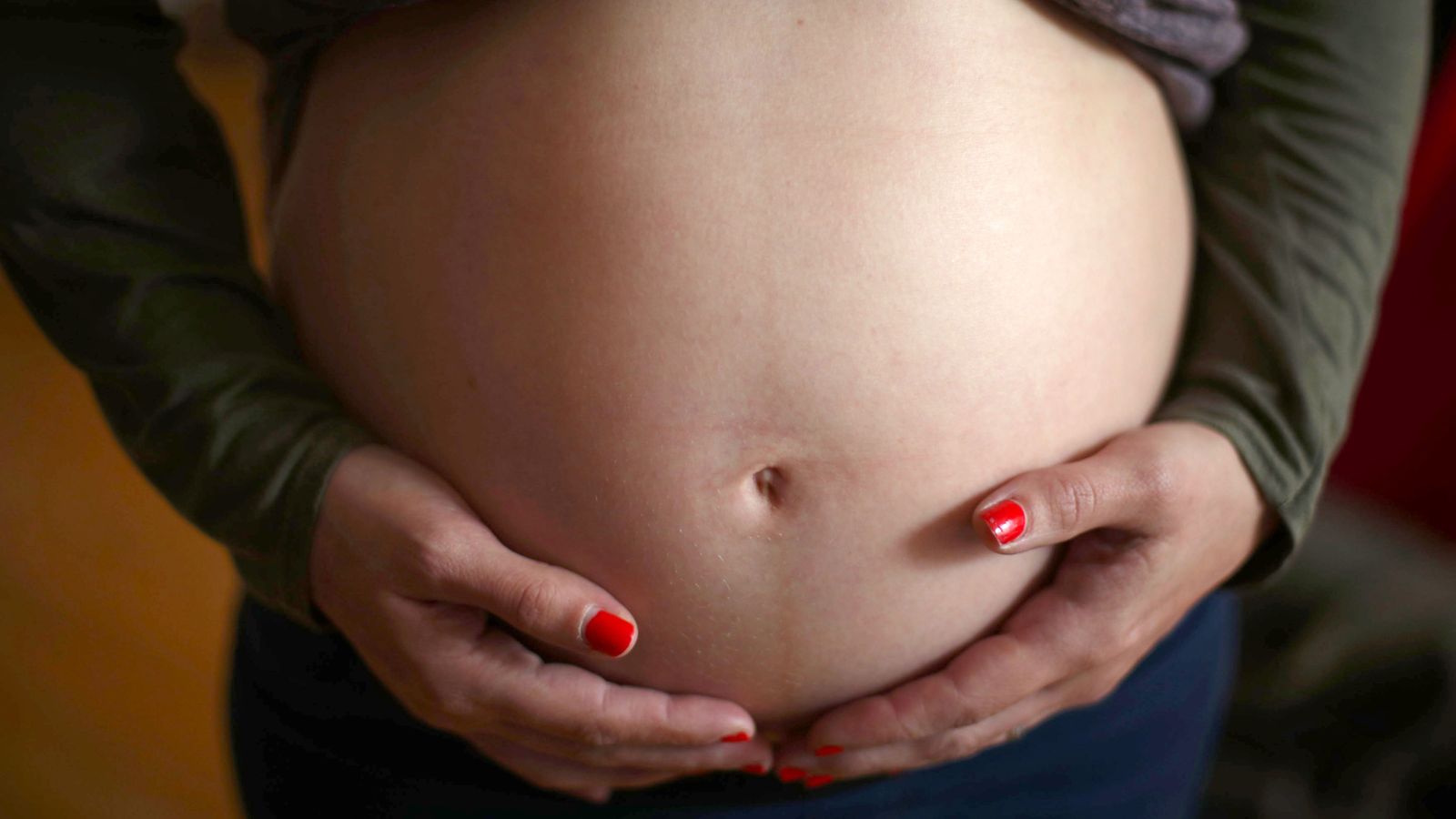All parents affected by miscarriage should be given paid leave, campaigners have urged, as a bill is introduced to parliament aimed at changing the law.
Currently, there is no legal entitlement for people who lose a baby before 24 weeks in pregnancy.
However, it is estimated that as many as one in four pregnancies ends in miscarriage.
Legislation has been proposed at Westminster calling on the UK government to entitle parents to a minimum of three days paid miscarriage leave.
“Miscarriage is horribly common and far more common than people expect so when it happens to them it’s usually a shock,” said Ruth Bender Atik, the national director of the Miscarriage Association.
“The rights aren’t many. They are basically that they are entitled to pregnancy-related leave, not necessarily paid leave, that depends on their terms and conditions.
COVID-19: Sajid Javid wants to ditch PCR tests for travellers ‘as soon as I possibly can’ – as he reveals vaccine passport plan axed
COVID-19: UK records 56 further coronavirus-related deaths and 29,173 cases
Emma Raducanu: ‘We are taking her home’ – Delighted British tennis star posts first tweet since historic win
“Everyone’s particular circumstances and needs can differ. For some women they may need just a few days off work. Others may need many weeks.
“I think what’s tricky about it is the issue of whether it’s paid or not.”
She is calling on employers to ensure staff get the support and time off they need.
She added: “There’s no time limit for pregnancy-related leave.
“However long you take it can’t be used in any way to disadvantage you, that’s the legal aspect of it.
“But if you’re not paid and you need the money that you bring in from work then you may not have that option.”
Anna Malnutt from Heanor in Derbyshire had three miscarriages in 2018 – each time before 10 weeks of pregnancy.
She said: “You don’t expect it to be such a heart-wrenching thing I guess because in many ways it’s just a very medical experience.
“They don’t talk about it as a baby, they talk about it as a foetus and, you know, it’s surgery and drugs and hospitals and there’s no kind of consideration that to me that’s a tiny human and that’s a tiny human that was going to come into my life and now they’re gone and never going to come back.
“We had hopes for that child and we had dreams for that child and we’d thought about names and gender and what we might paint the nursery like and all of those things and so even though we’d only known about them a short space of time they’d just been ripped away from us really cruelly.”
Follow the Daily podcast on Apple Podcasts, Google Podcasts, Spotify, Spreaker.
When she found out she was pregnant again in 2019 she and her husband John feared another miscarriage, but happily she gave birth to a baby boy, Elias, in May 2020.
Looking back Mrs Malnutt said one of the “biggest mistakes” she made was returning to work too soon.
She said: “It really dragged out the grief for me so I was grieving for months.
“I became very snappy and I wasn’t the person that I recognised and ultimately I ended up leaving my job because I just couldn’t be there anymore because so much of it is tied in with the experiences that I’d had, but also I felt like I wasn’t myself there and I think a lot of that is because I went back to work too soon.
“If there was a specific leave made for if you’ve gone through a miscarriage, then it gives you permission I think to take it and I think that’s really important.”
Angela Crawley MP has introduced a backbench Private Members Bill in a bid to change the law to one similar to that in Scotland and New Zealand.
She said: “There are companies who offer greater leave and absolutely I would love to see more companies introduce a policy of seven to 14 days paid, but my bill would be primarily to seek three days paid leave for parents before 24 weeks.
“I think often, sadly, this is seen as a women’s issue and there’s stigma and shame attached to the experience of miscarriage and I do not believe that should be the case in this day and age.
“This is an issue that affects both parents when they undergo that loss and to have the right to grieve and the right to have that paid and recognised by their employer is an important milestone.”






















